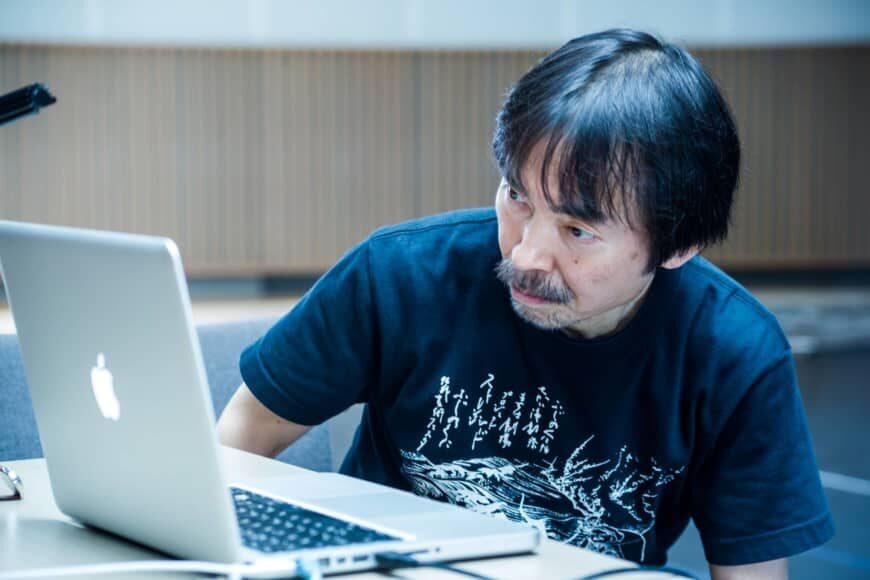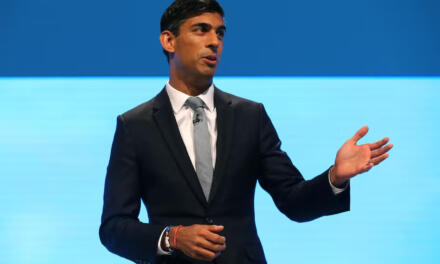On April 3, Shizuoka Performing Arts Center (SPAC) announced the cancellation of this year’s edition of its annual World Theatre Festival Shizuoka, which was due to be held from April 25 to May 6. The loss of the renowned international theater and dance festival as a result of the coronavirus pandemic left a sizable void for artists and fans over the Golden Week holidays.
“Not only me, but our staff and actors were all entirely stumped,” Satoshi Miyagi, SPAC’s general artistic director, tells The Japan Times. “The shock made us realize we can’t live without theater — it’s as simple as that because it’s a matter of vital importance to our spirit. So instead, we decided to run a theater-like event we called the World Theatre Festival on the Cloud, with its programs mainly for online distribution.”
With that commitment made, Miyagi, 61, sprang into action, holding remote meetings with his actors and staff, and together organizing about 50 programs — all of them free.
Among the new festival’s core projects, Miyagi not only held Zoom meetings with rising Japanese dramatists, but also conducted live-streamed discussions with leading artists from France (Wajdi Mouawad and Olivier Py), Switzerland (Omar Porras), Brazil (Christiane Jatahy), and Russia (Kirill Serebrennikov) who had been scheduled to present plays at the physical festival, and posted some of their past works online.
In addition, Miyagi streamed his Buddhist-style production of the Greek tragedy Antigone, from when it was accorded the honor of opening France’s Avignon Festival in 2017. It was an offer 13,000 people took up over the five days it ran, while thousands also watched livestreams of self-isolating SPAC actors rehearsing and training, and a series of drama lessons led by Miyagi.
Consequently, while art fans couldn’t enjoy the seaside of Shizuoka or the green tea fields around SPAC’s hilltop site this year, more than 30,000 viewers did get to enjoy the wealth of variety at the core of this year’s online festival, including some usually unseen aspects of theater creation.
Meanwhile, in what the organizers of World Theatre Festival on the Cloud dubbed a “blossom” side project, in reference to the cherry trees that flower every year ahead of the festival, SPAC posted videos featuring backstage staff such as set design and costume teams, who were shown making masks, and interviews with Japanese artists who had previously worked with SPAC.
In addition, overseas actors were invited to join a special program in which they narrated Kenji Miyazawa’s 1930s poem “Ame ni mo Makezu” (“Be Not Defeated by Rain”) in both Japanese and their own languages.
As a result of all this, the online festival attracted more than 55,000 views in total. In comparison, around 5,000 people normally pay for tickets for the annual World Theatre Festival Shizuoka.

Virtual presence: World Theatre Festival Shizuoka moved online for 2020, adopting the name World Theatre Festival on the Cloud.
Finally, for 134 people quick enough to take up the offer, SPAC actors telephoned them and delivered a free hour-long one-to-one reading of whichever theatrical piece they selected from a range of choices. (Due to their popularity, the reading sessions will be made available again from June 6 to Aug. 31).
“I was pleased to hear that many people really enjoyed this emergency festival,” Miyagi says.” In particular, lots of them praised the way we connected with artists in other countries to create a bona fide international theater event.”
He says that with what he now knows, it should be no problem in the future to forge connections online with artists and audiences outside Japan who tend “to nest in their territories, isolated from others.” Indeed, he says the situation has given him plenty of hope through talking with colleagues around the world.
“First, I was despairing in the face of COVID-19, and I felt so uneasy about the future of theater that I even imagined it would die out,” says Miyagi. “However, I realized that dramatists everywhere had the same problems, and so I felt stronger connections with them. Then, I believed that with such solidarity and enthusiasm and wisdom, theater would never die. Beyond that, I also think this crisis presents a good opportunity to hone the true essence of theater and weed out the previous oversupply of mediocre productions.”
Yet Miyagi says he wasn’t sure at first that SPAC’s online festival would be interesting for audiences, as he worried it wasn’t “real theater.” But, despite overcoming his anxieties in the interests of “people who desperately needed theatre”, they were still evident in the festival’s opening message, in which he wrote,
“Many people like kanikama (imitation crab sticks) even though they’re not really made from crab, so we’ll serve our customers tasty kanikama theater, too.”
Now, while he can’t imagine SPAC’s members’ meeting, training and rehearsing together much before late summer at best, he is also concerned that audiences may not be comfortable returning to any of the group’s four theaters quite so soon, fearing it could be a year before that happens.
“I think the next few months will be crucial for the survival of Japanese theater, and I would like to devote myself to thinking how we can tell people about the real value and importance of theater,” Miyagi says. “In France, for example, theater is recognized as an important component of society, the same as public transport, and actors will be among the first groups allowed back to work. In Japan, however, it is often seen as a kind of hobby, a nonessential activity.”
“Now, though, I believe society here needs theater more than ever. So this is the time to prove it is an important, essential part of people’s lives, and that actors are key players in modern society.”
This article was originally posted at japantimes.co.jp on June 5th, 2020, and has been reposted with permission. To read the original article, click here.
This post was written by the author in their personal capacity.The opinions expressed in this article are the author’s own and do not reflect the view of The Theatre Times, their staff or collaborators.
This post was written by Nobuko Tanaka.
The views expressed here belong to the author and do not necessarily reflect our views and opinions.


















